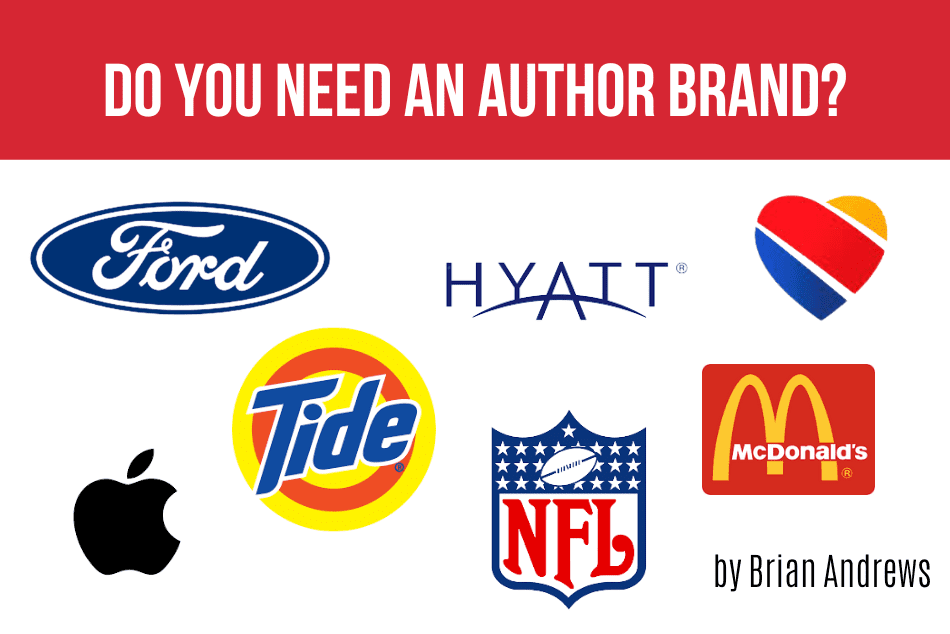Read the following list of brands and tell me what each company sells:
Apple, Ford, Netflix, Delta, McDonald’s, Pepsi, and The Home Depot.
I’m sure you answered the first question easily. Now try to imagine each of their logos. Can you do it? I bet the answer is once again yes. Do you know why? Because every single company on this list has spent billions of dollars investing in their brand. For a Fortune 500 company, its brand is arguably its single most valuable asset. Think about that for a moment, that a name and a logo—something that’s essentially theoretical—might be more valuable than its cash reserves or its inventory. Why do you think that is?
The reason is a brand transcends any particular product, a company’s employees or CEO, and even its physical presence. A brand exists solely in the minds of the consumer public.
BRANDS ARE STICKY
Once a consumer discovers a brand they can’t “un-know” it. In that respect, brands are sticky, which is another way of saying that brands are something that people remember. Brands are almost always tied to experience, which is why people don’t forget them. Once you’ve drank a Coca-Cola, it’s almost impossible to forget the experience. If you enjoyed the taste and found it refreshing, your opinion of Coca-Cola is positive. If you found it sickly sweet and the carbonation gave you indigestion, your opinion is likely negative.
This is how it goes with brands. Once a consumer forms an opinion about a brand, that opinion (regardless of whether it’s good or bad) that opinion is hard to change.
BRANDS HAVE LONGEVITY
The more robust and popular the brand, the longer brand will persist in the market. Ford motor company has been making automobiles for over a hundred years. Around the world, multiple generations of people know the brand Ford. Even if Ford were to go out of business tomorrow, the Ford brand would persist in the minds of people for decades and decades to come. And Ford’s legacy would continue to influence automobile design and history for as long as people buy and drive cars.
BRANDS INFLUENCE BUYERS’ DECISIONS
Big brands dominate the marketplace because once a buyer has had an experience with a particular brand, buying a product from that company again does not require discovery. In other words, if you’re trying to decide which new car to buy and you’ve heard of Ford, GM, and Toyota, but you’ve never heard of Rivian, BYD, or VinFast, then odds are very very high you’ll buy a car from the former list of makers and not the latter. People would rather buy things they know than go with a new brand they aren’t sure they can trust.
SUCCESSFUL AUTHORS HAVE BRANDS
Take a look at this list: JK Rowling, Stephen King, Agatha Christie, James Patterson, Tom Clancy, Sue Grafton
Is there a single name on this list you haven’t heard of? I highly doubt it, because these authors have sold hundreds of millions of copies. They are genre trailblazers. They are emulated. They’re celebrated. They’re household names. The author brands listed above are worth hundreds of millions of dollars. (in the case of Rowling, probably billions of dollars).
Now, I know what you’re thinking: I’m an aspiring author trying to get my first novel published. Branding is something I can worry about later.
Sure, you could worry about it later, but that would be a mistake. Because in a competitive landscape, you need to have laid the foundation for your author brand BEFORE you get published.
DO YOU NEED AN AUTHOR BRAND?
The simple answer is YES. Today’s agents and acquisition editors are looking for more than just a good story; they’re looking for authors who have a platform, which is a precursor to becoming a brand. Authors who have a brand are known by readers, agents, editors, and other authors. Authors with brands win more awards, get invited to engagements, sell more books, and get more marketing dollars spent on promotion by their publishers than other authors.
Hopefully, I’ve convinced you of the importance and value of having an author brand. But how, you ask, do I do that? To answer that question, tune in to Part Two of this series where I’ll share with you my 4-Step Process to building a powerful author brand.
Do you have thoughts on Author Branding? Join the discussion on Facebook.





